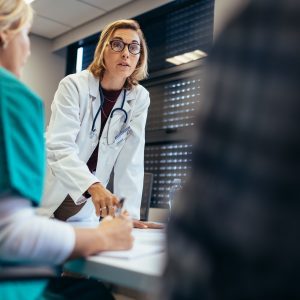Vanishing Act: What Happened To Those Of Us With Non-COVID Medical Needs?

Vanishing Act: What Happened To Those Of Us With Non-COVID Medical Needs?
May 6, 2020
Perhaps one of the biggest mysteries of the coronavirus outbreak has nothing to do with the virus itself, but rather what may be “collateral damage” from the pandemic: that is, patients who need important non-COVID-19 medical care but are not showing up at physician’s offices or hospitals. Given the guidance from experts and medical associations that non-essential care and elective surgery should be delayed or postponed right now, it’s not surprising that fewer patients are seeking out medical help. And while there’s good reason for patients to be concerned about virus exposure, especially when arriving at an ER, there’s also concern that “COVID Phobia” is accounting for a significant drop in the number of heart attacks, stroke, and appendicitis victims being treated.
The fact that these medical issues are not being addressed could have serious implications for patients, families, and the broader health care system. Generally speaking, as The Washington Post reports, there is a “silent epidemic” of people not seeking out care, or coming in very late, who may, therefore, experience unnecessary complications or even fatal results. This includes cancer patients and those awaiting transplant surgeries. There’s even concern that many non-COVID deaths are resulting from this delayed care and, as ProPublica reports, much of this delay may be caused not by lack of hospital capacity but rather from lack of PPE (personal protective equipment) and lack of preparedness to deal with the virus (especially insufficient COVID-19 testing). Before the pandemic, in any given month, there were typically 1 million surgeries performed (not to mention pro-active screenings like colonoscopies and mammograms). That’s a lot of backlog now being created that our system may not be able to handle when and if we return to some sort of normal. Moreover, due to coronavirus, there are shortages of blood, doctors, nurses, and other support staff that are exacerbating delays and likely expediting the number of non-COVID deaths. And in a vicious cycle, lack of non-emergency care and testing has also meant less revenue for health care systems, leading to more layoffs and furloughs of physicians, dentists, and other essential care providers, and further jeopardizing our already fragile system. Reuters recently reported dramatic drops in rates of such screenings as blood sugar tests (down 65%), cholesterol panels (down 67%), and cervical cancer screenings (down 68%), all sources of revenue that have now been cut off (not to mention patients in need whose medical issues are not being picked up).
So how do you know whether you should wait things out and hope for the best, or seek out care and face the potential risk of coronavirus exposure? Those with chronic health conditions face the greatest risk and severity of illness from the COVID-19, according to the CDC. A recent article in Next Avenue provides links and suggestions for seeking out care for diseases such as diabetes, cancer, heart disease, and stroke. Some basic guidance? You may be surprised at how reachable your usual care providers are by telemedicine, so never hesitate to call and find out if that’s an option. And if a visit is recommended? The Wall Street Journal suggests you first inquire about infection control measures the office is taking, like limiting persons in waiting rooms or disinfecting exam rooms.
Finally, Consumer Reports has a series of articles with concrete suggestions for seeking needed care at this time. Some basic questions to ask yourself: Is your situation a true emergency, where time is of the essence (signs of a stroke or uncontrolled vomiting, for example) or do you feel that check-in via telemedicine is sufficient to get you started? Is your condition from major trauma (car accident involving head injury?) or perhaps more of a minor mishap that you may be able to address at home? But if you face what you think is a real emergency, then be prepared with some of these expectations: The 911 screener will likely want to know if you have any COVID-19 symptoms, you may be pre-screened at the ER entrance before actually being brought into the hospital and accompanying family members will likely not be permitted to join you.
If fear of being exposed to the virus inhibits you from seeking out care, you’re not alone. But the bottom line is for many conditions, especially chronic illness, the longer you wait and self-manage, the more likely you’ll face complicated situations that may also threaten your health and life. So when in doubt, best to initiate a call to your physician.







